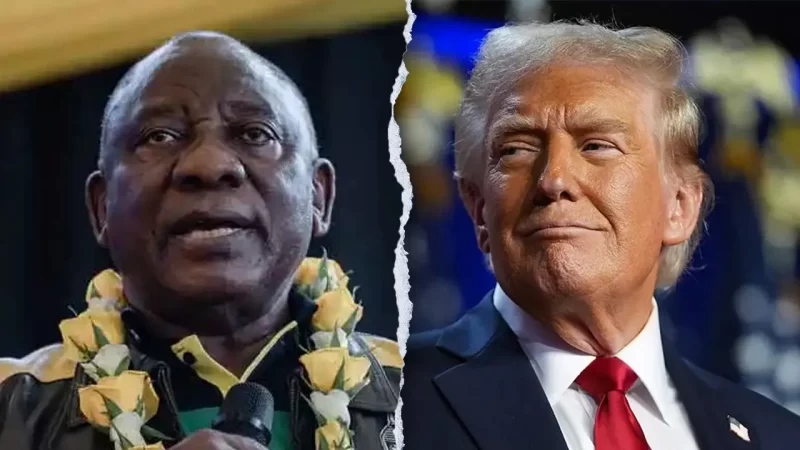
The Trump administration is taking new steps to aid Afrikaners, descendants of white, mostly Dutch settlers in South Africa, following President Trump’s statements about their potential resettlement in the U.S. The State Department has confirmed it’s reviewing refugee resettlement inquiries and conducting informational interviews with interested individuals. This follows President Trump’s renewed criticism of the South African government’s treatment of farmers, many of whom are Afrikaners. The exact number of South Africans expressing interest in resettlement remains undisclosed by the State Department, though the South African Chamber of Commerce in the U.S. reported 67,042 inquiries as of last month.
Meanwhile, various South African groups are actively lobbying the U.S. government. AfriForum, a political group instrumental in bringing the Afrikaner plight to President Trump’s attention, has visited Washington. Other groups, like the Cape Independence Advocacy Group, are also seeking U.S. support for their causes, advocating for the creation of a separate state in South Africa.
Perhaps the most intriguing development involves the Orania Movement, an Afrikaner settlement that’s seeking U.S. recognition as an autonomous state within South Africa. The Orania Movement, with a population of 3,000 and a stated growth rate of 10-12% annually, boasts self-sufficiency in areas like water purification and energy, along with thriving agricultural and educational sectors. Their CEO, Joost Strydom, emphasized their desire not for refugee status, but for U.S. support in their quest for autonomy, enabling them to govern and protect themselves without external interference.
The South African government has dismissed these lobbying efforts, stating that these groups do not represent the majority of South Africans. However, a State Department spokesperson clarified the administration’s position, highlighting President Trump’s executive order holding the South African government accountable for alleged violations of Afrikaner rights and prioritizing humanitarian relief for victims of racial discrimination.
This situation presents a complex interplay of humanitarian concerns, political maneuvering, and historical complexities. The future of Afrikaners in South Africa, and the extent of the U.S.’s involvement, remains to be seen. The ongoing dialogue between the U.S. and various South African groups will undoubtedly shape the outcome of this evolving situation.










